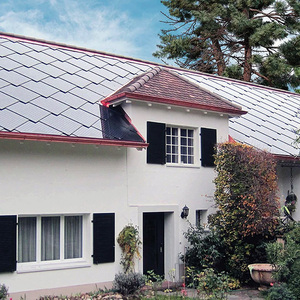*
We are building a home 1/2 mile from our power company and they only want $11,000 to hook us up and allow us to buy their product. We can’t live with that kind of generosity. I know that fuel cells are almost here. Does anyone out there know anything about them or can suggest a source? We are building this summer. Thanks much!!
Discussion Forum
Discussion Forum
Up Next
Video Shorts
Featured Story

Apprenticeship programs can be a valuable tool for residential builders to recruit, train, and retain skilled employees, offering a structured pathway for career advancement and equity in the trades.
Featured Video
Builder’s Advocate: An Interview With ViewrailHighlights
"I have learned so much thanks to the searchable articles on the FHB website. I can confidently say that I expect to be a life-long subscriber." - M.K.
Fine Homebuilding Magazine
- Home Group
- Antique Trader
- Arts & Crafts Homes
- Bank Note Reporter
- Cabin Life
- Cuisine at Home
- Fine Gardening
- Fine Woodworking
- Green Building Advisor
- Garden Gate
- Horticulture
- Keep Craft Alive
- Log Home Living
- Military Trader/Vehicles
- Numismatic News
- Numismaster
- Old Cars Weekly
- Old House Journal
- Period Homes
- Popular Woodworking
- Script
- ShopNotes
- Sports Collectors Digest
- Threads
- Timber Home Living
- Traditional Building
- Woodsmith
- World Coin News
- Writer's Digest


















Replies
*
Reduce your need for power....that's my pipe dream...that and living just offshore to be done with all forms of taxation fo lousey representation....
Fuel cells will be a few more years unless you can get a company to give you a prototype to use...though I could be wrong.
near the stream...thinking solar shingles and heat,
aj
*There's a place in New York state advertising them, at plugpower.com, but they haven't responded to my e-mails so I'm not very impressed. Let me know if you find out anything. ThanksLee
*http://www.internationalfuelcells.com/solution/stat/index.shtmlJust another place to check out for fuel cellsRalph
*http://www.daisanalytic.com/analytic/RPG.htmlHere's another. This one is up for testing. Maybe, as was suggested earlier, you could contact these people and volunteer as a test site.My first post, above, is probably overkill for residential, unless you could provide power for your neighbors or sell back to the utility.
*Ed,Plugpower is near me...a hot stock of late...they just broke ground on a huge new building complex...finalizing prototypes...doing research...there first area of use I think is not residential in nature...By the way...fuel cells use fuel...they are not going to save anybody money today or next year....you might make money if you buy and sell their up and down stock with insider information or luck but that's all they are worth today as far as I know...but I could be wrong.near the stream,aj
*Fuel cells create electricity directly by burning hydrogen and oxygen. The only waste product is water. They hold huge promise as a replacement for the internal-combustion engine in the next couple of decades. There is probably no reason preventing them being configured as stationary power plants. The current problems are that they are still largely experimental, are very expensive and there is no infrastructure for the delivery of liquid hydrogen.Nice thought though. All things considered, I think $11,000 looks like the cheap solution here.
*..... as usual I agree with Charley..hehis there any potential for additional subscribers to tie into the line , or will it be just you, now and forever..if there is a potential, I'm sure you're going to get something in your contract with the utility about being reimbursed by any future subscribers to the line...and yeh, $11,000 sounds good, or at least , better than alternative energy...what's wrong with a private generator..compare capital outlay plus operating expense of the generator against capital outlay and utility costs with the power company...then add in the intangibles,, like access to cable,, resale value of your home, yada , yada ..
*Fuel Cells Are Coming! So I've been told for the last several years. I pay most attention to the North country so I only know of test sites there. One in Alaska right now. But, they are EXPENSIVE. So, I'm with the rest of the folks. Its' highway robbery but commercial power is the best way to go unless you want to go into the utility business with PV panels, batteries and generators.
*I think your best bet is the power company. If you want independence and are willing to Pay for it investigate photo voltaic and wind.. You can put together a 5 k. system today for about $5/watt peak generating power. With the proper batteries and converters you can pull much more for short periods.HomePOwer magazine has had many articles on such systems. Check them out at http://www.homepower.com
*Where will you be building? In some climates $11,000 will go a long way with solar, hydro or wind power.
*Fuel cells will be about 60% more efficient at converting energy than a gas engine. Gas engines only put 30% of the input energy out the crankshaft.Fuel cells put 50% of the input energy out as electricity and the rest as heat. Capture the heat for DHW or heating and you have power companies beat by a longshot. You probably didn't know this but the electricity delivered to your house via conventional wires was a wopping 20% efficient!! Superconductors will change all this and then fuel cells will really have to earn their keep.Plug Power claims to be searching for demo sites, but they will not answer my e-mail. They say the street price will be $7000.Buy their stock kids, they won't be plug power forever. While you are at it buy stock in Ballard Power Systems in Canada as well.You may also want to consider a micro-turbine generator. Capstone makes a small unit that runs on many fuels, you can capture waste heat, etc. You will need a big fuel tank to run long term, but the fuel company doesn't care about the extra half mile.-RobP.S. - my first post on the new system, tons faster
*This release may be easier on the eyes:Plug Power and GE Sign Agreement with Vaillant to Develop the Next Generation of Heating Appliances 10 March 2000 - Latham, N.Y. -- Plug Power Inc. (NASDAQ: PLUG) and GE MicroGen announced today that they have signed a development agreement with Joh. Vaillant GmbH u. Co. of Remscheid, Germany, one of Europe's leading heating appliance manufacturers. The agreement is for a combination furnace, hot water heater and fuel cell system that will provide both heat and electricity for the home. The fuel utilization efficiencies of this appliance will be twice that of many existing conventional power plants. Fuel cells are on-site power generation devices that produce electricity through an electrochemical reaction, rather than combustion. The benefits of fuel cell technology include higher efficiency, near-zero emission of pollutants and other particulate matter (e.g. smog), and reliability. Plug Power is committed to developing and manufacturing fuel cell systems for residential, small business and automotive applications. Fuel cells by themselves run at a 40% fuel efficiency rate which is similar to many of the large central station generating plants in operation today. The remaining 60% of the fuel energy is wasted or lost when released into the environment in the form of heat. An advantage of having a fuel cell at a residential location is the ability to capture this heat and put it to good use such as making hot water or heating the home. The fuel cell heating appliance under development improves the overall efficiency to 80% or more. Under the agreement, Vaillant will obtain fuel cells and gas-processing components from Plug Power and then produce the fuel-cell heating appliances for its customers in Germany, Austria, Switzerland and the Netherlands. Vaillant will also produce these appliances for GE MicroGen who will then market the appliances under the GE brand name throughout Europe. "These new forms of distributed generation will let us make effective use of our world's scarce resources," said Gary Mittleman, Plug Power president and CEO. "Plug Power and Vaillant will develop environmentally friendly fuel cell heating units which will enable homeowners to meet their electricity, hot water and heating needs." The appliances are scheduled for testing in European markets by the end of 2001. Sales are scheduled to begin in 2003. Headquartered in Remscheid, Germany, Vaillant is a pioneer among leading European heating technology companies. With 5,400 employees, Vaillant is the leading European supplier offering customers a complete range of central heating and hot water appliances using electricity, gas and oil, as well as solar heating appliances. It has production facilities at five locations in Germany and one in Spain. The company celebrated its 125th anniversary last year. GE MicroGen is a subsidiary of GE Power Systems, one of the world's leading suppliers of power generation technology, energy services and energy management systems. A $10+ billion business, GE Power Systems serves customers through a global network of offices and service centers, and has the largest installed base of power generation equipment in the energy industry. In February 1999, GE MicroGen and Plug Power, a leading developer of proton exchange membrane (PEM) fuel cells for stationary and automotive applications, formed a joint venture to distribute, install and service Plug Power-manufactured stationary fuel cell systems worldwide. The venture with Plug Power is the latest in a series of actions by GE Power Systems to broaden its participation in the small power generation market. GE Power Systems' portfolio of power generation products now extends from 2 kW up to 450 megawatts (450,000 kW). Plug Power is a leading U.S. designer and developer of on-site, electricity generation systems utilizing proton exchange membrane fuel cells for residential applications. Since being founded in 1997, the Latham, N.Y.- based company has grown from 22 to over 350 employees. Plug Power's strategic partners and investors include DTE Energy Company, Michigan's largest electric utility; Mechanical Technology Incorporated, an early developer of fuel cell technologies; General Electric Company, one of the world's leading suppliers of power generation technology and energy services; and Sempra Energy subsidiary, Southern California Gas Company, the largest U.S. natural gas distribution company.
*Chauncey: What fuels do you have available? Natural gas or just fuel oil and propane?While theoretically very attractive, fuel cells have a practical problem no one has gotten around. If there's carbon in the fuel (natural gas, propane, gasoline, diesel, etc) and you react it with oxygen, you get CO2. The CO2 goes to carbonic acid in the water electrolyte and that reacts with the hydroxide in the electrolyte solution. If someone could only make a fuel cell with an acidic electrolyte, CO2 wouldn't be a problem, but the acid corrodes metal electrodes, etc. So you have to use hydrogen as the fuel. All remote fuel cells (with the exception of NASA's hydrogen fuel cells, but they're on a different kind of budget, $/kwh-wise) and the ones being developed for cars make hydrogen from hydrocarbon fuels in a little chemical processing plant. It's easiest to produce hydrogen from natural gas via the shift gas reaction, but it can be done from propane, ethanol, gasoline or diesel. But it is going to be a megabuttload of pipes, control, catalysts, and reaction vessels before you even get to the fuel cell.I am a chemical engineer, a passable plumber, and good with control systems. I wouldn't go fuel cell at this point even if I had natural gas to the property. I'd look at low-rpm, long-life generators with heat recovery (co-gen), solar cells, and wind power. I think the first viable route for fuel cells will be when Honda or someone has a automotive, gasoline-based hydrogen generator (they're getting close). Then buy an Accord and park it at your house. That will be so much more reliable, economical, and serviceable than anything available now. -David Kenai, Alaska
*David....A+ for your report card....The best post for overall content, quality and lack of the irational...and no flames(hopefully)!!!near the stream,aj
*Hi Jack! Thanks. Being off the grid, except for the natural gas pipe, was so tempting for our 13 acres in Alaska, but I just couldn't justify it.I'm back, at least for a while, after a 6 month haitus.I was cranking to get my house built in 9 months before my wife finished her 9 month construction project. Moved in Feb 27, 12 days before her due date. We unpacked, had about a day to say to each other, "We like this house we designed/built; spectacular view!; etc." and then she went into labor on March 1. Pissed off a bunch of women in town because 77 minutes after we checked into the hospital, we had a son, Drake. (First labors are supposed to last for days).So here I am, posting again, between diapers.-David
*I don't think I'm going to make my wife's due date. Might have to get a bigger tool belt to hold the kid with.
*David and family,Congrats on the new arrival...Hope you named him or her after me!Hmmm....AlaskaJack....AlaskaJackie...I like it!near the stream needing a reason to go flying in Alaska next year,aj
*Congratulations on the little one Wife and David!As for what to do for electricity. I can only agree with the theme. At this time grid electricity is far and away the most convenient and efficient even if it costs a great deal to get it to the site. I know there are several fuel cell tests in prgress areound the world. One is up the road a couple hundred miles from you David under the Univ of Alaska.IF those test demonstrate fuel cell effectiveness and IF they indicate a decent efficiency and a decent price and IF they are able to satisfactorily solve a couple problems: Then they should just about supplant most remote site PV systems. I think they will do all this. But that is just a thought, not a fact.Currently, if you can't get grid power to the site the best bet in my experience is a blended system using natural(solar, wind, water) and generation using a generator or two.
*Yes, you're building a little too soon for a fuel cell based power plant. Reliable commercial units will probably be available in 2002. Plug power/GE issues the most press releases but there are at least three other companies that will probably begin to introduce these plants in the same time frame.Your's is the perfect application though. Running and maitaining transmission lines are big expenses for the power company.Lenny
*Fuel cells are always 5 years off. And for most residential folks, I doubt they could justify the initial capital outlay in order to go off the grid. $11,000 for service is a lot of jack, but look at it this way - you will have over 97% reliability and someone to call if it goes wrong. Would you rather have an unproven technology that might burp at any second?
*I work about 1000 feet away from a fuel cell demo unit and I live in a house with solar NV electricity. My NV system has had less outrages than the grid in my area (Long Island NY). I would reccomend a NV or NV/wind system. Make your house energy efficient. Fuel cells are too expensive and you still have to buy the fuel.
*what's new and different with home fuel cells ?
*
We are building a home 1/2 mile from our power company and they only want $11,000 to hook us up and allow us to buy their product. We can't live with that kind of generosity. I know that fuel cells are almost here. Does anyone out there know anything about them or can suggest a source? We are building this summer. Thanks much!!